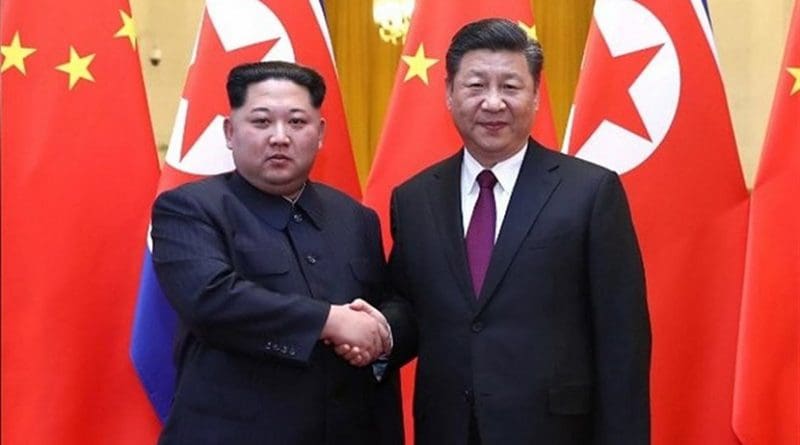What Has Gone Wrong With South Korea? – OpEd
By Max S. Kim
The latest developments between the two Koreas have made one thing very clear: The Moon administration of South Korea has formed a solid anti-American bloc with the Kim regime of North Korea and the Xi regime of China. This leftwing bloc in Northeast Asia has been under the control of China’s military-industrial complex, which has backed Xi Jinping and his clan domestically and transformed and kept the two Koreas under its influence.
The Xi regime of China has supplied nuclear materials and technology to North Korea. North Korea has conducted the last four of its six nuclear blasts under Xi’s rule. North Korea executed Kim’s powerful uncle, Jang Song Thaek almost immediately after Xi’s rise to power. Jang was close to China’s then-premier Hu Jintao, who preferred regime change and economic reform for North Korea. The Xi regime informed North Korea of a confidential conversation between Jang and Hu on a succession plan after the death of Kim Jong Il, the father of North Korea’s present chairman Kim Jong Un. Chairman Kim’s half-brother and heir apparent of North Korea’s Kim dynasty, Jong Nam was murdered at the Kuala Lumpur Airport last year since he was Jang’s choice for North Korea. He was put to death after having contacted “Americans” for political asylum, according to a news report. On the day he was murdered, all his Chinese bodyguards eerily disappeared, and he was alone and unprotected at the airport. Given that Jong Nam was under China’s protection (or surveillance), this implicates China for his murder in some ways.
China’s secret plan to subvert the democratic governments of South Korea and Japan began around the time when Nixon visited Mao in 1972 and started a diplomatic tie with China. I believe that China was behind the assassination of South Korea’s then-president Park Chung Hee in 1979 and the bloody riot in Kwangju in the spring of 1980. The leftwing politicians of South Korea, including Kim Dae Jung, have had close ties with China, and Chinese money has infiltrated South Korea’s private sectors. China’s most recent political manipulation was last year’s impeachment of South Korea’s sitting president that resulted in indefinite imprisonment of President Park Keun Hye, the daughter of the assassinated president Park Chung Hee. There are unmistakable patterns of China’s maneuvers in the South Korean politics, economy, and mass media, and discernible eyes can see them without difficulty.
In his UN speech this week Moon Jae In talked about South Korea’s plan to expand its railroad construction as part of China’s One-Belt-One-Road project and build a gas pipeline through North Korea. Why is Moon staying on a suicidal mission? Why does South Korea want the North’s Kim regime to control the lever of the supply line? That is not the kind of decision a sovereign nation can make for its prosperity. It is an order from its master a satellite state cannot refuse, and this shows unequivocally where South Korea is heading to.
Any move towards a peace treaty between the United States (on behalf of the United Nations) and North Korea to formally end the Korean War and nullify the 65-year-old Armistice has one glaring hole: It does not mention China as the single-most important party to the Korean War from start to end. China played a decisive role in one of the bloodiest wars in human history. It was China that sent its battle-hardened elite troops to North Korea for the opening day of the Korean War. It was China that deployed an army of more than a million men to buttress North Korea, when the United Nations coalition troops almost defeated the invading North Korean forces near the Yalu River on the northern border. It was China that signed the three-party Armistice in 1953 with the United States (on behalf of the United Nations) and North Korea.
China must pay for the cost of the Korean War and the countless innocent deaths, both civilians and military personnel, during the bloody three-year Korean War. To date, China has not issued a single word of apology to the world and to the South Koreans. Why is China hiding behind the puppet governments that it has created? Why does China mum about the war in the Korean peninsula that they instigated? Why does Xi Jinping not ask President Trump to formally end the Korean War?
*Max S. Kim received his PhD in cognitive science from Brandeis University and taught at the University of Washington and the State University of New York at Albany. Besides his own field of profession, he occasionally writes on regional affairs of the East Asia, including the two Koreas.

